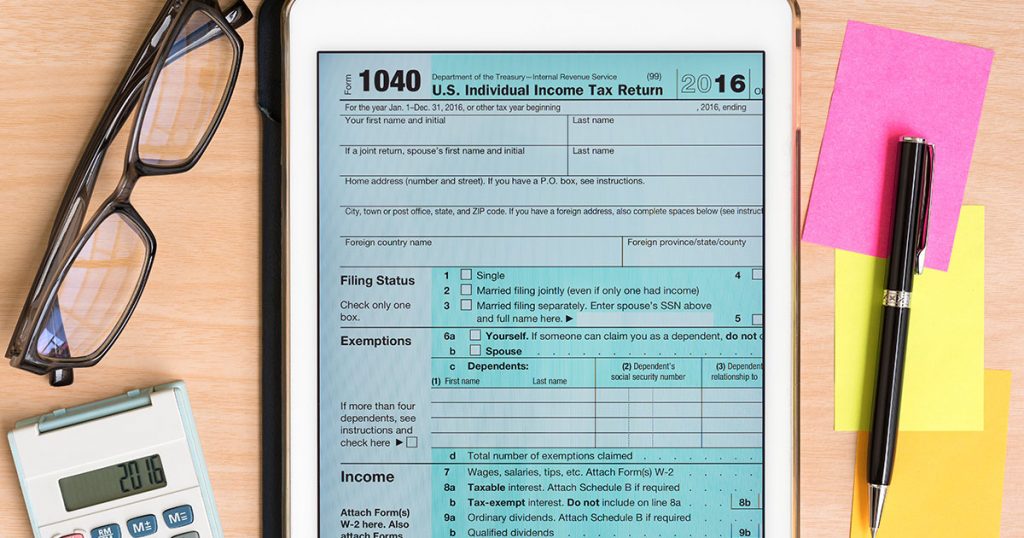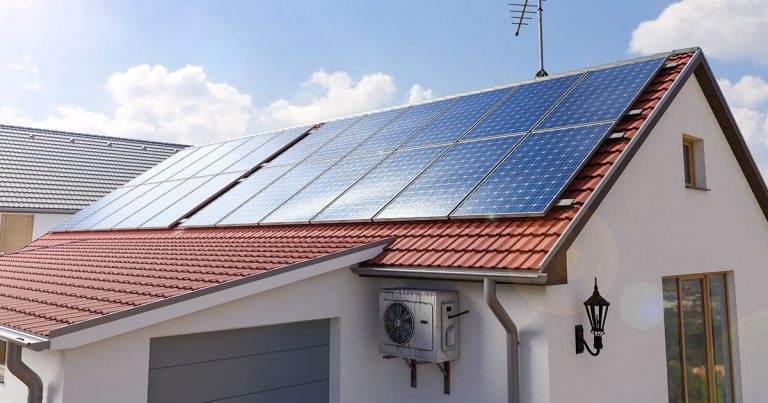The Clean Vehicle Credit for electric vehicles is getting a great deal of attention, but the Inflation Reduction Act (IRA) also includes many new or revised home energy improvement related tax credits.
For example, the credit previously known as the Residential Energy Efficient Property (REEP) Credit is now the Residential Clean Energy Credit. Individuals are allowed a personal tax credit for solar electric, solar hot water, fuel cell, small wind energy, geothermal heat pump, and biomass fuel property installed in homes before 2024. Under the IRA, the credit has been extended for property installed before 2035. The credit is also available for qualified battery storage technology expenditures.
The Biden administration has rolled out a new webpage for taxpayers to learn more about how to claim various energy tax credits under the IRA. The Clean Energy web page serves to educate the public on incentives available for home energy conservation upgrades, including weatherization, rooftop solar systems and electric appliance installation. For each credit, the page explains how taxpayers can save money this year and provisions that take effect beginning next year. Taxpayers can sign up for email updates to be notified when new energy tax credit and rebate information is posted. Click here to visit the webpage.
ABLE Accounts May Provide Tax Benefits for Loved Ones with Disabilities
 Achieving a Better Life Experience (ABLE) accounts can help support disabled individuals without affecting their eligibility for government benefits. Although contributions to an ABLE account aren’t tax-deductible, earnings are tax deferred. Even better, if distributions are used by a beneficiary for specified disability-related costs, they’re tax-free.
Achieving a Better Life Experience (ABLE) accounts can help support disabled individuals without affecting their eligibility for government benefits. Although contributions to an ABLE account aren’t tax-deductible, earnings are tax deferred. Even better, if distributions are used by a beneficiary for specified disability-related costs, they’re tax-free.
For 2022, family members and friends may contribute up to $16,000 annually and can shelter their contributions from gift tax by the annual gift tax exclusion. In addition, some ABLE account beneficiaries who are 18 or older and employed may contribute to their accounts and qualify for the retirement saver’s tax credit. Click here for more information from the IRS.
Court Rules Settlement Payment Must Be Included in Taxable Income
 Tax law excludes from “gross income” damages received in a legal action for “personal physical injuries or physical sickness,” if certain conditions are met. There must be a “direct causal link” between the damages and the injury.
Tax law excludes from “gross income” damages received in a legal action for “personal physical injuries or physical sickness,” if certain conditions are met. There must be a “direct causal link” between the damages and the injury.
In one case, the U.S. Tax Court ruled that married taxpayers weren’t entitled to income exclusion for a settlement payment the husband received from his former employer in connection with an employment discrimination / wrongful termination lawsuit. Although the settlement agreement provided for payment “for alleged personal injuries,” there was no evidence that it was paid on account of physical injuries or sickness.
The court stated: “We are sympathetic (the taxpayer’s) situation and do not doubt that the circumstances of (his) termination caused them emotional and economic harm. However, we are not a court of equity, and we cannot ignore the law to achieve an equitable end.” (Dern, TC Memo 2022-90)
Here Are Some Tax Tasks If You’re Hoping to Start a Business
 Many people dream of being their own bosses someday. To get off to a strong start, you’ll need to make good decisions. For example, which business structure should you use (such as a sole proprietorship or corporation)? This decision will affect the taxes you pay.
Many people dream of being their own bosses someday. To get off to a strong start, you’ll need to make good decisions. For example, which business structure should you use (such as a sole proprietorship or corporation)? This decision will affect the taxes you pay.
Another decision is whether to operate on a calendar year or fiscal year basis. You should also obtain a federal employer ID number to identify your business. If you hire employees, you must provide them with certain forms right away, including Form I-9 (Employment Eligibility Verification) and Form W-4 (Employee Withholding).
Click here for more information from the IRS, including links to requirements for states.
Treasury Secretary Announces IRS Spending Plans Under the New Law
 How will the IRS spend $80 billion of new funding provided under the new Inflation Reduction Act? The plan is to course-correct after setbacks (including COVID-19) that led to erosion of customer service.
How will the IRS spend $80 billion of new funding provided under the new Inflation Reduction Act? The plan is to course-correct after setbacks (including COVID-19) that led to erosion of customer service.
U.S. Treasury Secretary Janet Yellen has listed some key areas of focus. They include:
- Modernizing IRS operations and technology systems,
- Fully staffing all IRS Tax Assistance Centers by next year to triple the number of taxpayers able to get in-person help, and
- Cutting the wait time for telephone assistance. This will be done by bringing on 5,000 additional phone representatives, who will aim to reduce wait times from the 2022 filing season average 30 minutes to less than 15 minutes.
More than half of the new funding will be used for compliance enforcement, which led to concerns there will be more audit scrutiny of working-class and middle-class families. But Yellen said that audit rates won’t go beyond “historical levels” for households making under $400,000 in annual income. Added scrutiny will be directed to wealthy individuals. With improved technology, she said, “we expect audit rates for honest taxpayers to decline.”


